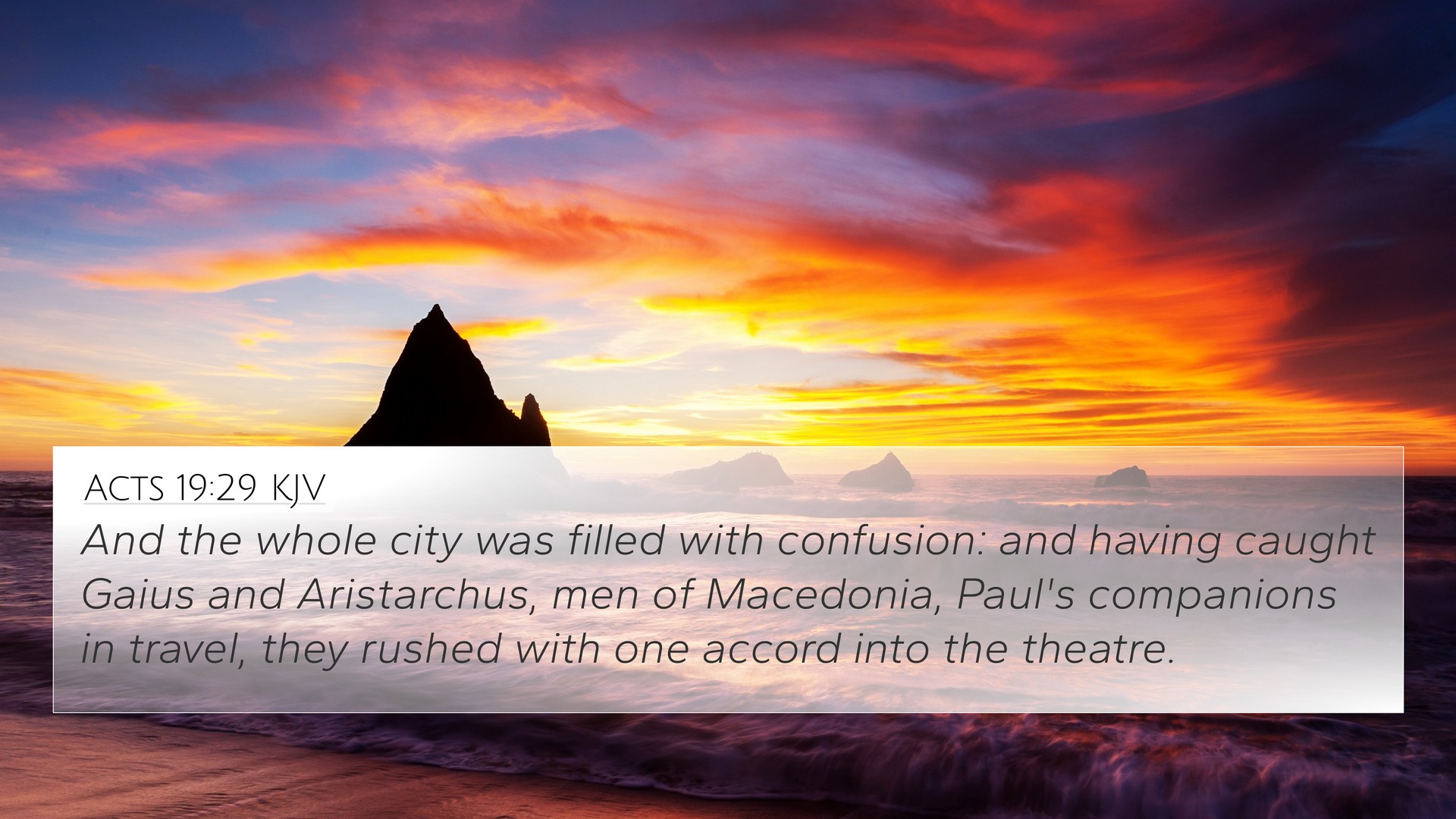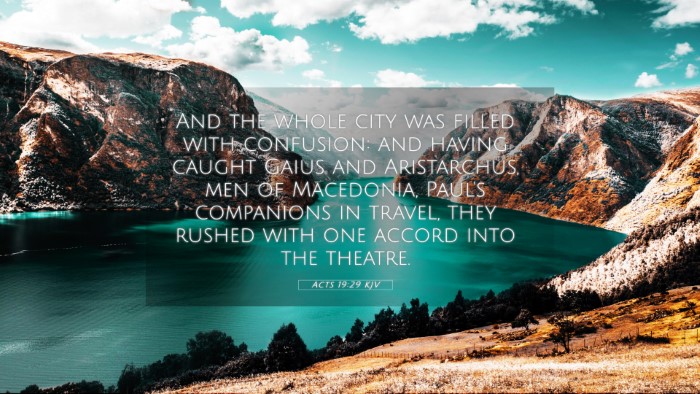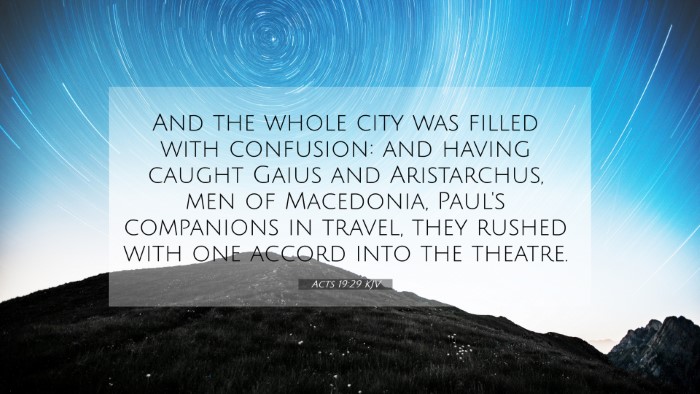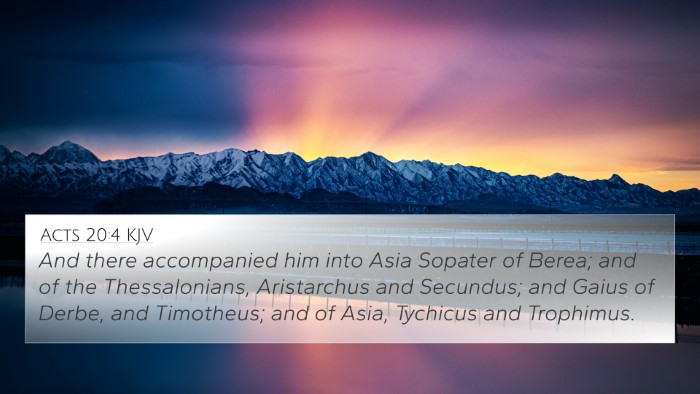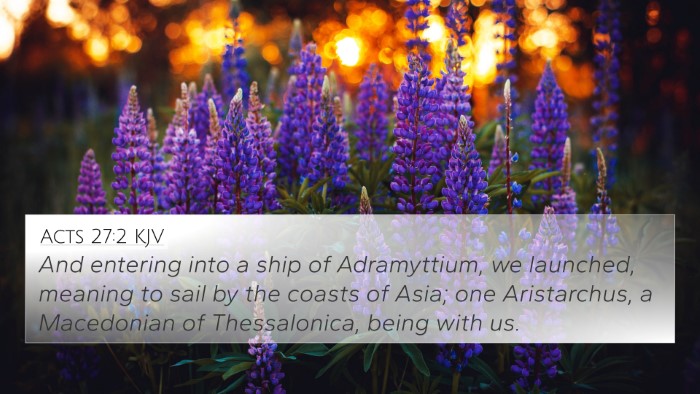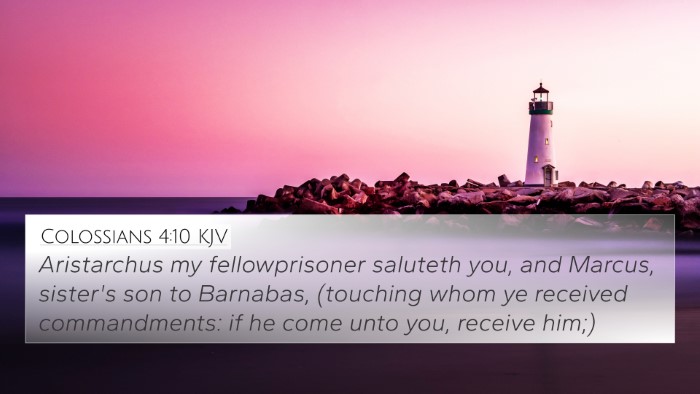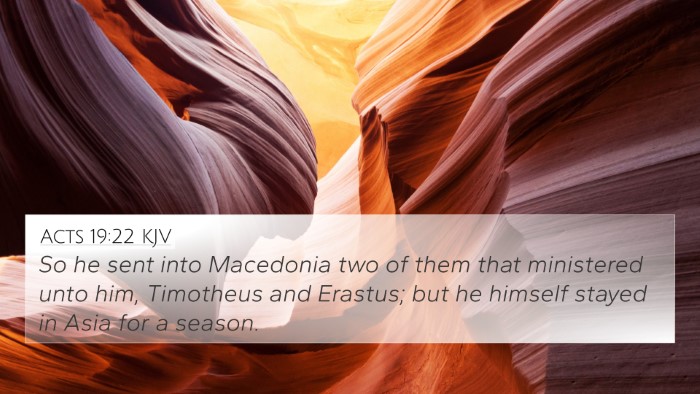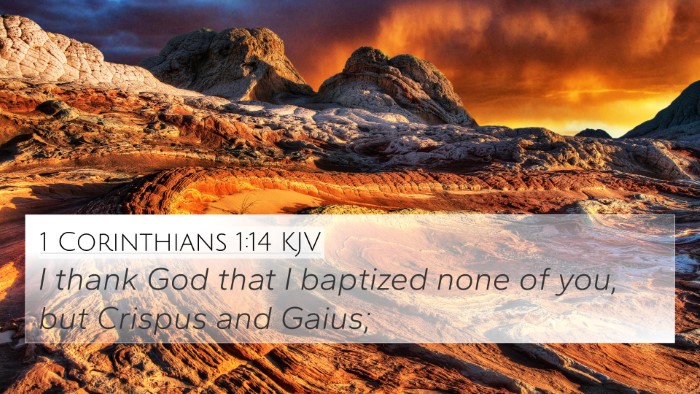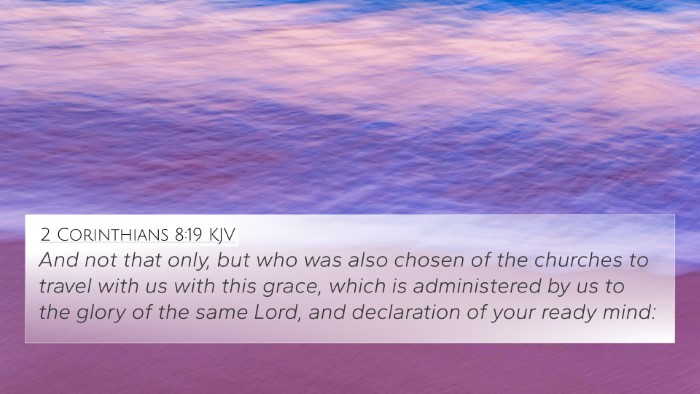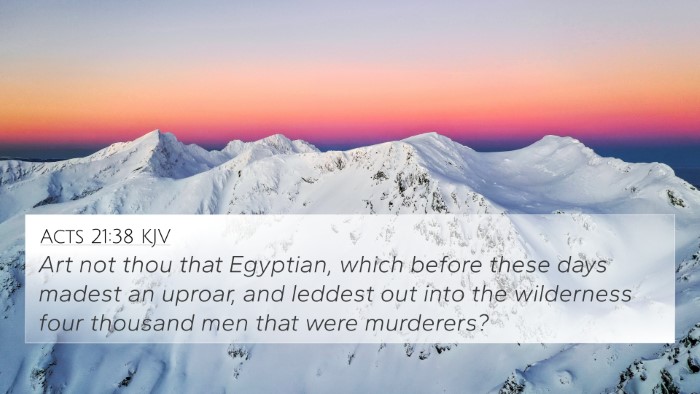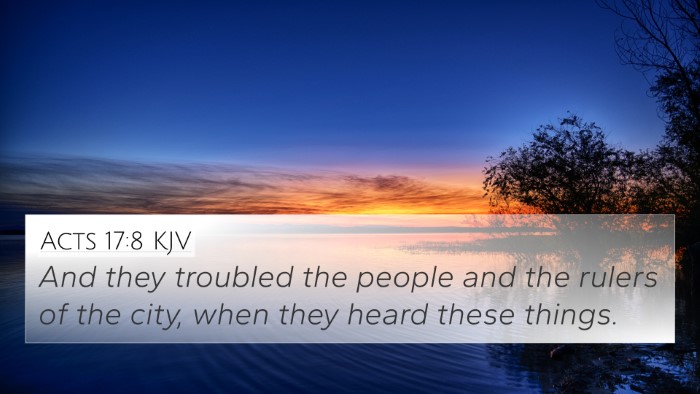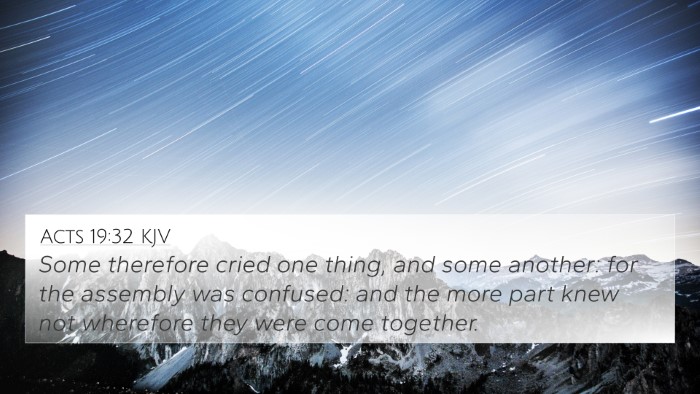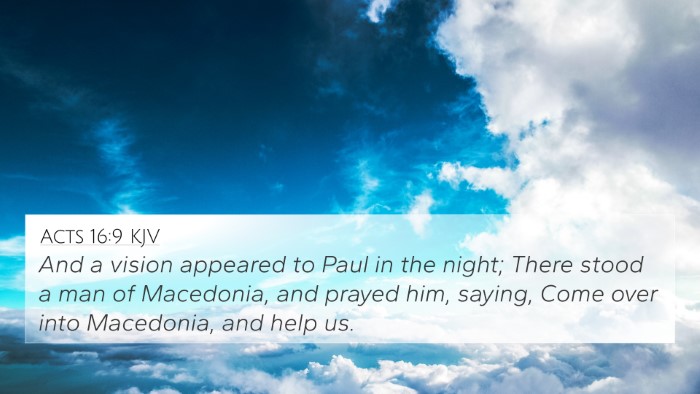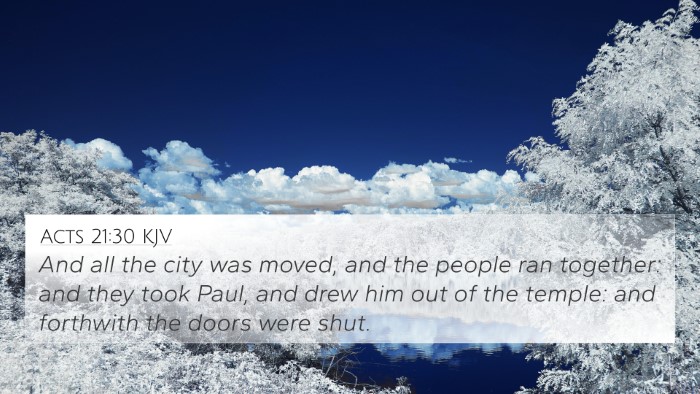Understanding Acts 19:29
The verse Acts 19:29 plays a significant role in the narrative of the early church and reflects the intensifying tensions faced by the apostles as they spread the gospel. In this context, it is important for readers to grasp the broader implications of this incident alongside its specific historical circumstances.
Context of Acts 19:29
Acts 19:29 states, "And the whole city was filled with confusion, and having caught Gaius and Aristarchus, men of Macedonia, Paul's companions in travel, they rushed with one accord into the theatre." This moment follows Paul's extended ministry in Ephesus, marked by both success in converting many and opposition from local silversmiths who profited from the worship of Artemis.
Meaning and Interpretation
The verse illustrates a critical opposition to the Christian message, driven by economic interests tied to false worship. Commentaries provide various insights into this dynamic:
-
Matthew Henry:
Matthew Henry emphasizes the chaos that ensues when the local economy is threatened by the truth of the gospel. He notes how the uproar is a reflection of the people's confusion between their old beliefs and the new teachings presented by the apostles.
-
Albert Barnes:
Barnes highlights the unity of the crowd in their opposition and how it serves as a reminder of human nature in the face of truth. He points out that the gathering in the theater against Paul and his companions signifies a violent reaction against any challenge to their beliefs.
-
Adam Clarke:
Clarke elaborates on the implications of the crowd’s actions and how the theater, as a venue, symbolizes open rebellion against the Christian message. He recognizes the significance of the companions Gaius and Aristarchus, as their involvement underscores the danger facing those who align with Paul.
Cross References Related to Acts 19:29
To deepen the understanding of Acts 19:29, it's helpful to consider various Biblical cross-references:
- Acts 19:23-27: Describes the rise of the silversmiths' anger against Paul due to the decline in the worship of Artemis.
- 1 Corinthians 1:18-25: Discusses the power of the message of the cross in contrast to worldly wisdom, reflecting the confusion experienced in Ephesus.
- Matthew 10:16: Jesus’ words on being ‘sheep in the midst of wolves’ resonate with the opposition encountered by Paul and his companions.
- Romans 1:18-23: This speaks to the rejection of truth and the consequences of idolatry, relevant to the confusion in Ephesus.
- Acts 6:15: Mirrors the false accusations and mob mentality against Stephen, drawing parallels to the chaos incited against Paul.
- Luke 21:12-19: Jesus warns of societal and religious opposition that His followers would endure, correlating with the trials faced by Paul.
- Philippians 1:28-30: Paul encourages believers in their struggle against opposition, emphasizing the purpose of their suffering.
- 2 Timothy 3:12: Declares that all who desire to live godly will face persecution, reinforcing the experiences of the apostles.
- 1 Thessalonians 2:14: Describes how the churches in Judea suffered the same kind of persecution, echoing the Ephesus incident.
- John 15:18-20: Jesus foretells the hatred of the world towards His followers, demonstrating a prerequisite for understanding such tumultuous situations.
Thematic Connections
This verse connects with broader themes in scripture, particularly the tension between truth and prevailing cultural beliefs. The links between different narratives can help uncover how the message of Christianity consistently meets with resistance contextually across time and geography. The thematic resonances of economic interests, cultural clashes, and the steadfastness of early believers invite further reflection and study.
Tools for Bible Cross-Referencing
For readers seeking to further explore Acts 19:29 and its connections, various resources can enhance understanding:
- Bible concordance: Useful for finding related themes and words throughout scripture.
- Bible cross-reference guide: Offers structured links between verses for deeper study.
- Cross-reference Bible study: Involves thematic exploration of scriptural connections.
- Bible reference resources: Tools and compilations that assist in cross-referencing biblical texts.
Conclusion
In conclusion, Acts 19:29 offers rich insights into the conflicts faced by early Christians as they proclaimed the gospel. The confusion of the crowd serves as a poignant reminder of the opposition that arises when economic and religious interests collide. By utilizing cross-references and engaging tools for Bible study, readers can gain a comprehensive view of the interconnectedness of scripture pertaining to this verse and beyond.
